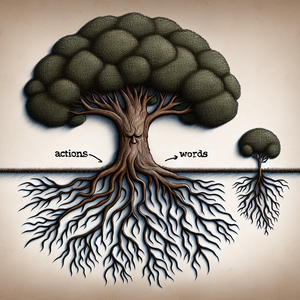The Green Revolution: Sustainable Companies on the Rise in Chicago

Sustainability is no longer just a buzzword; it has become a fundamental aspect of business strategy for many companies. In Chicago, a wave of enterprises has adopted eco-friendly practices, demonstrating that profitability and environmental responsibility can coexist.
Examples of Sustainable Companies
For instance, TOMS Shoes and Warby Parker have embraced sustainable materials and ethical sourcing. TOMS is known for its "One for One" model, where every pair of shoes purchased helps a person in need. Warby Parker has made significant strides in using sustainable materials for their eyewear and has a strong commitment to social responsibility. Their commitment to environmental stewardship resonates with consumers, particularly millennials and Gen Z, who increasingly prefer brands with a clear commitment to sustainability. Moreover, local startups such as Green Building Innovations have pioneered new technologies that promote energy efficiency in construction. By developing sustainable building materials and practices, they not only contribute to reducing carbon footprints but also cater to a rising market demand for green architecture.
The Demand for Eco-Friendly Products
The consumer landscape has also shifted significantly, with a growing demand for eco-friendly products. According to a 2016 Nielsen report, nearly 66% of global consumers are willing to pay more for sustainable brands. This trend is particularly pronounced in urban areas like Chicago, where residents are increasingly aware of their environmental impact. Companies that align their offerings with these values are seeing substantial growth.
Local Success Stories
For instance, The Honeycomb Network, a Chicago-based company that connects local farmers with consumers, has experienced impressive growth by promoting organic produce and reducing the carbon footprint associated with food transport. Their success underscores the idea that consumers are not just looking for high-quality products; they also want to support businesses that prioritize sustainability. By offering fresh, local produce, they not only enhance food security but also contribute to a sustainable food system.
Innovative Solutions and Challenges
While the rise of sustainable companies presents a wealth of opportunities, it also comes with challenges. Many of these businesses face hurdles such as sourcing sustainable materials, managing costs, and navigating regulatory environments. However, innovation has emerged as a crucial driver for overcoming these obstacles.
Collaborative Efforts
Take Civic Consulting Alliance, for example, which partners with local governments and nonprofits to implement sustainable urban development projects. By leveraging public-private partnerships, they have created innovative solutions that address urban challenges while promoting sustainability. Their work exemplifies how collaboration can lead to impactful outcomes that benefit both the community and the environment. Another example is Eco-Structure, a firm focused on sustainable architectural design. They create buildings that are not only aesthetically pleasing but also energy-efficient by using advanced materials and technologies.
Impact on the Local Economy
The growth of sustainable companies in Chicago is not just a trend; it has significant implications for the local economy. These businesses are creating jobs, stimulating local economies, and attracting investment. According to a report from the Chicago Metropolitan Agency for Planning, green jobs are expected to grow significantly, offering new opportunities for residents in various sectors, from renewable energy to sustainable agriculture.
Economic Growth and Inspiration
Furthermore, as these companies thrive, they contribute to a larger movement towards sustainability, inspiring other businesses to adopt similar practices. This collective shift can lead to a more resilient economy that prioritizes environmental health and social responsibility. For instance, the growing popularity of urban farming initiatives in Chicago has not only improved food access but has also spurred local economic growth by creating jobs in agriculture and related sectors.
As we reflect on the rise of sustainable companies in Chicago, it is clear that these enterprises are not merely riding a trend; they are forging a path toward a more sustainable future. By prioritizing eco-friendly practices, meeting the growing demand for green products, and fostering innovation, these businesses are reshaping the local economy and setting an example for others to follow. The Green Revolution in Chicago is a testament to the power of sustainability in business, illustrating that profitability and environmental stewardship can indeed go hand in hand. As consumers increasingly seek out sustainable options, the momentum for this movement is likely to continue, paving the way for a greener, more sustainable future for all. As a city that has faced its share of environmental challenges, Chicago's commitment to sustainability through these innovative companies marks a hopeful turning point, showcasing how urban centers can lead the way in the global movement toward a sustainable economy.
Sustainability Consultant
Deloitte, McKinsey
Core Responsibilities
Assess and analyze company practices to identify areas for sustainable improvements.
Develop and implement strategies for reducing waste and improving resource efficiency.
Collaborate with stakeholders to promote sustainability initiatives within organizations.
Required Skills
Strong analytical skills and experience with environmental impact assessments.
Knowledge of sustainability frameworks (e.g., ISO 14001).
Excellent communication and project management skills.
Renewable Energy Project Manager
NextEra Energy, Invenergy
Core Responsibilities
Oversee the planning and execution of renewable energy projects (solar, wind, etc.), ensuring they are completed on time and within budget.
Coordinate with engineers, contractors, and regulatory agencies to secure necessary permits and approvals.
Monitor project performance and implement improvements based on efficiency metrics.
Required Skills
Proven experience in project management, preferably within the energy sector.
Familiarity with renewable energy technologies and regulations.
Strong leadership and negotiation skills.
Sustainable Supply Chain Manager
Walmart, Target
Core Responsibilities
Develop and implement sustainable sourcing strategies that minimize environmental impact.
Evaluate suppliers based on sustainability criteria and performance metrics.
Collaborate with procurement teams to integrate sustainability into the supply chain process.
Required Skills
Expertise in supply chain management principles and sustainability practices.
Strong negotiation skills and the ability to build relationships with suppliers.
Knowledge of lifecycle assessment tools and sustainable materials.
Environmental Policy Analyst
World Resources Institute
Core Responsibilities
Research and analyze policies related to environmental sustainability and climate change.
Provide recommendations for policy improvements and engage with stakeholders to advocate for sustainable practices.
Monitor legislative developments and assess their impact on local and national sustainability initiatives.
Required Skills
Strong research and analytical skills, with experience in environmental science or public policy.
Excellent written and verbal communication abilities for report writing and presentations.
Understanding of environmental regulations and compliance issues.
Green Building Architect
Gensler, HOK
Core Responsibilities
Design buildings with a focus on sustainability, energy efficiency, and LEED certification.
Collaborate with clients and contractors to incorporate eco-friendly materials and technologies into designs.
Stay updated on sustainable building practices and regulations to ensure compliance and innovation in projects.
Required Skills
Professional architecture degree and experience with green building certifications (e.g., LEED).
Proficiency in design software (AutoCAD, Revit) and knowledge of sustainable materials.
Strong creative problem-solving skills and attention to detail.


